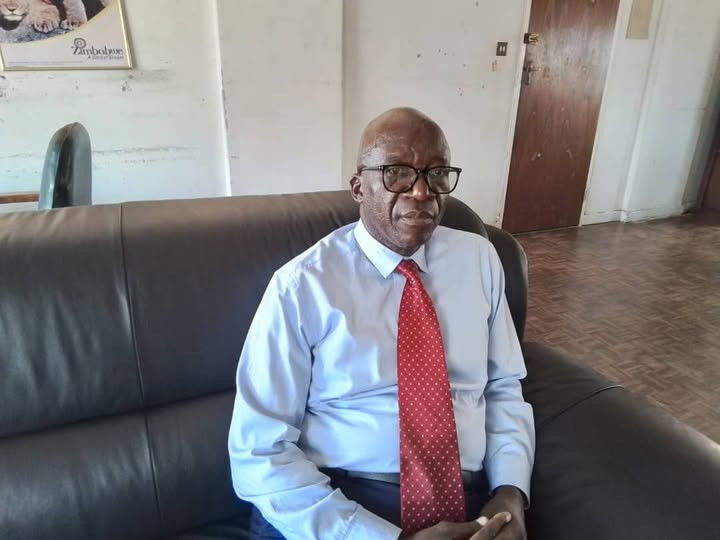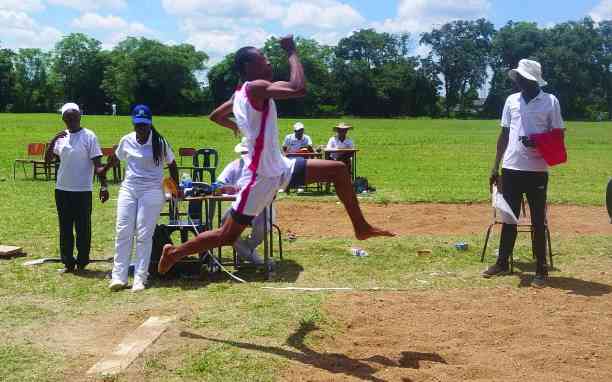
EVERYDAY, the sports pages, be it online or on paper, report on incredible feats and stories from all around the world, focussing on winning, success, bravery, comebacks and more. Right now, the Olympics, with all its different sports, are providing huge opportunities to touch people’s lives. There was one incident recently, however, which never made any headlines, locally, provincially, nationally, internationally but it does make this article - and so it should.
A proud mother (who just happens to have been educated in Zimbabwe – just saying!) recently shared on social media an incident involving her daughter. In some ways, it reminds us of other similar incidents involving other athletes at high-level competition. Take for example, John Landy, who in a race on his home track, with the opportunity to become the first man ever to break the elusive four-minute mile, stopped to go back and check on a fellow athlete who had fallen and been slightly spiked by Landy, before resuming the race and incredibly overturning the deficit to win – but not break the world record. He later had a statue entitled ‘Sportsmanship’ erected in his honour.
But this particular incident, shared by the mother, was at school level. Yes, we may think that the cost was far greater in an international top-class event, with a world record at stake, than at a local event involving young teenagers. But here is the point: it starts at school level. It must be learned at school level for it to be found later. Here is what happened in the mother’s words.
“Sportsmanship goes beyond a trophy or medal. It’s showing up and giving your best. But most of all it’s selflessness: when her 1500m started, another athlete fell. Miss S stopped to help that athlete up, and thus lost time on her own race and placed second last. We don’t care. To us, she won that event. It was hard not to get emotional hearing other coaches thank and congratulate her for such impressive sportsmanship. But that’s our girl - thoughtful and kind always.”
What that young lady did definitely needs to be recognised, respected and revered. It was all about the human race, not about the 1500 metres race. She won respect, far more valuable than medals. Her attitude towards fellow competitors, with equally high hopes, was more paramount.
Let us just add, though something else about that situation that is just as important, significant and praiseworthy. What that mother did, in sharing publicly the delight and pride in her daughter’s actions, also needs to be widely recognised, respected, repeated. Far too often, parents (and their schools) loudly boast of the results, no matter how they were achieved, no matter so few lessons being learned. The mother’s delight is radiant and inspiring. Parents need to learn.
We might just try to add, as an encouragement, that what Zimbabwe has done in raising a pupil, a product of one of our schools, to be such a parent needs also to be recognised – and also repeated – again and again. Parents, we need to take pride in our children’s actions more than their achievements. We need to applaud what is important in the long run, in the bigger scheme of things.
The name of the girl who won the race will be forgotten by most people – indeed, we do not know her name and we may well never do so. In truth, we do not need to do so. After all, she will not put that victory down on her CV; she will not win a husband, friends or jobs as a result of her name being recorded in some dusty file as the winner. Congratulations, sure, to her for the triumph, which will have been the culmination of much hard work. However, this Miss Special will go far because of such an action; she has demonstrated far more important qualities than someone who ran fast over a particular distance. She won something far more significant than a race - hearts.
- Mavhunga puts DeMbare into Chibuku quarterfinals
- Bulls to charge into Zimbabwe gold stocks
- Ndiraya concerned as goals dry up
- Letters: How solar power is transforming African farms
Keep Reading
We do not need to know or to shout the name of Miss S from the rooftops or record them here in these pages. The name is not important. She knew what she did was right and did not need our affirmation or direction of people in the crowd or on social media; that only emphasised the point that what she did was exactly what we would wish of all our children. We do not need statues for them. Others have done similar things; may many more be inspired to do so in the future. It starts at school level. It continues at parent level. It must be seen more in Zimbabwe. Go for it, my girl!











